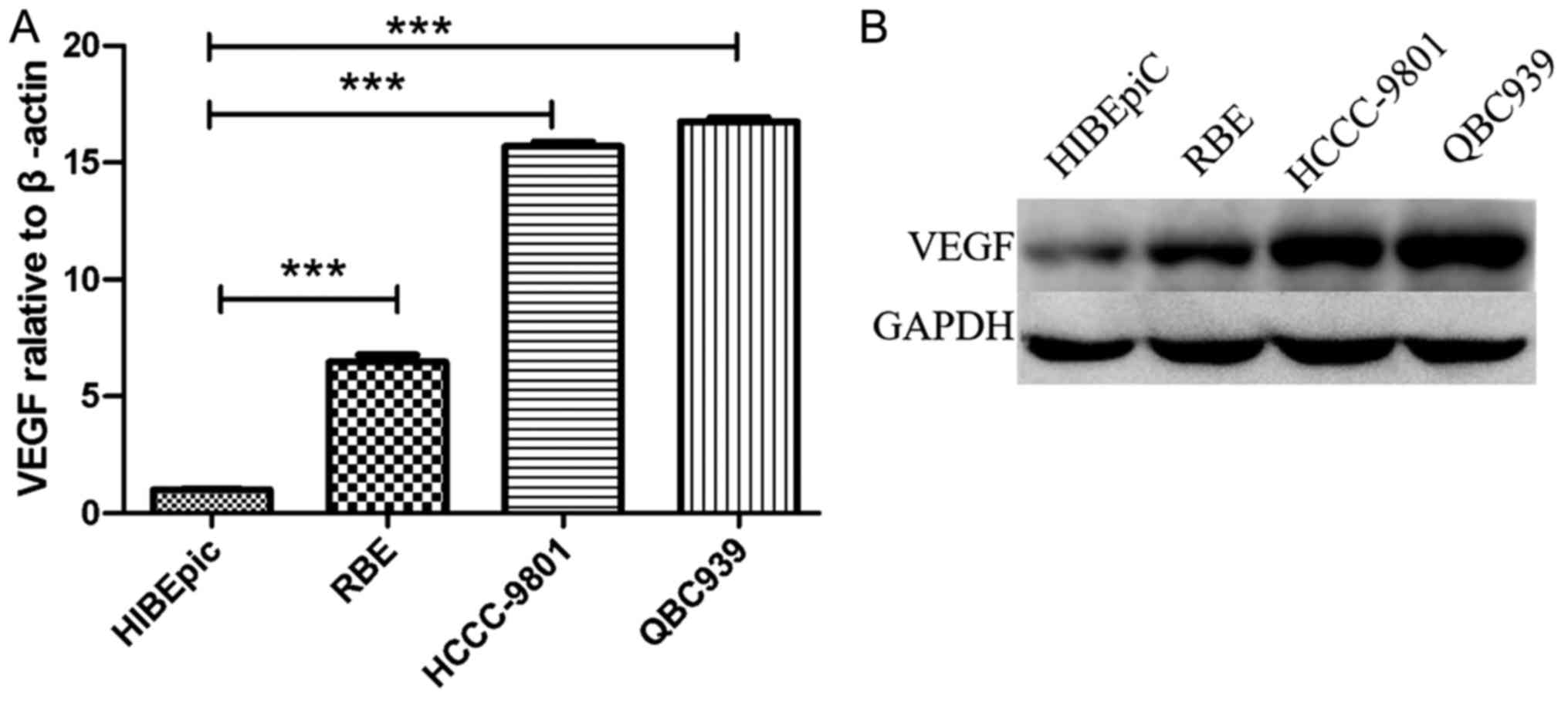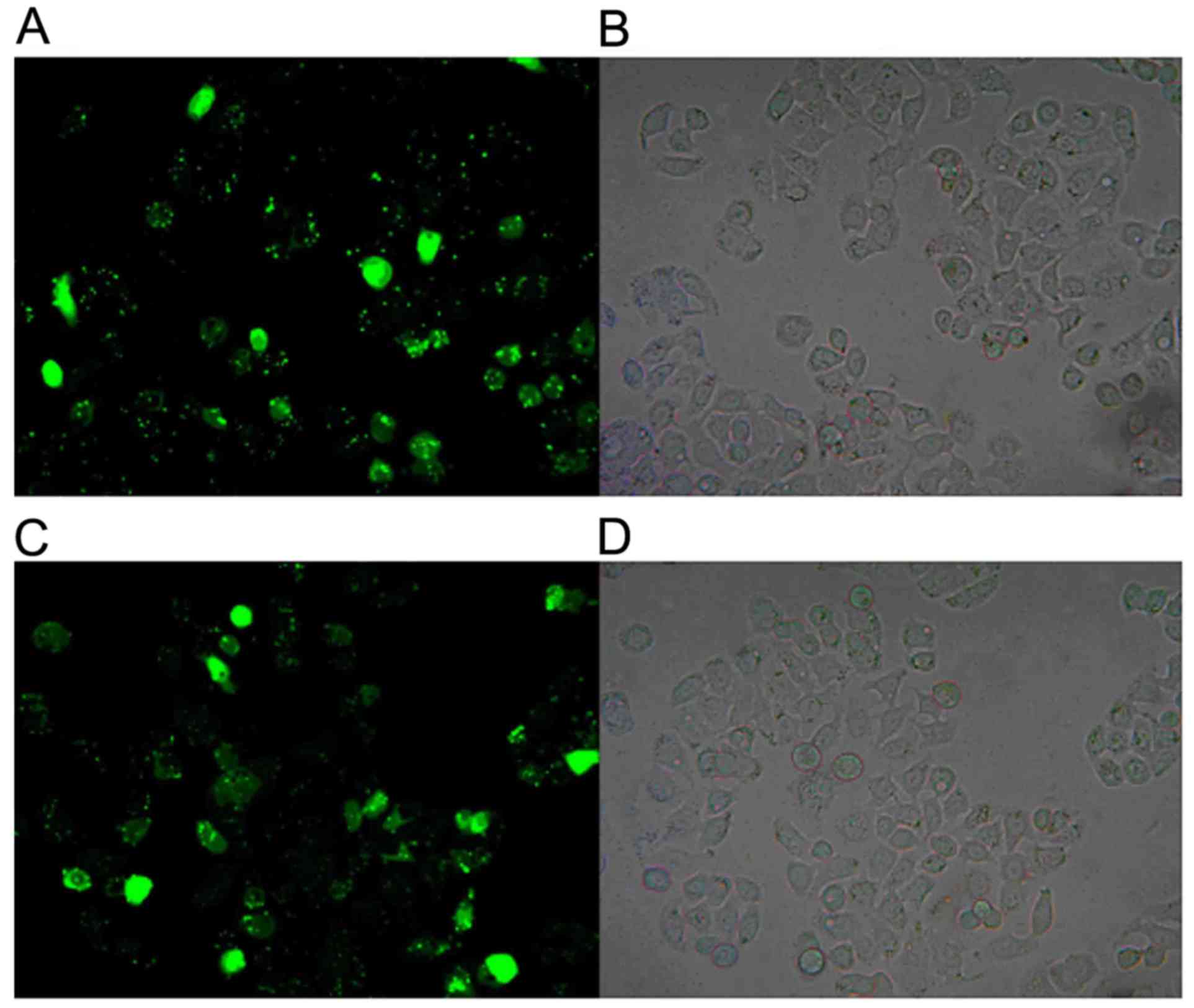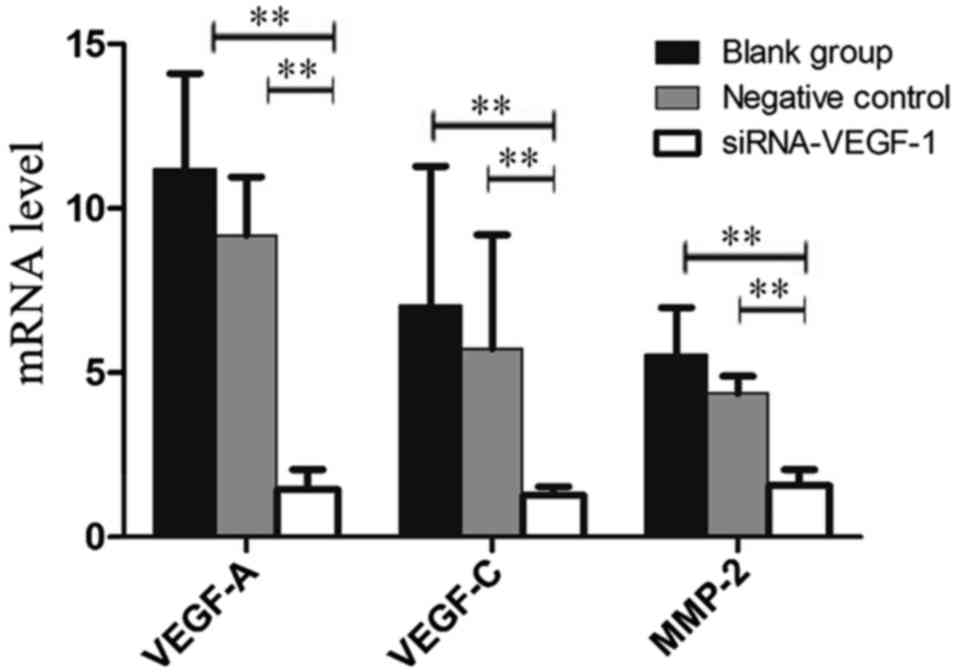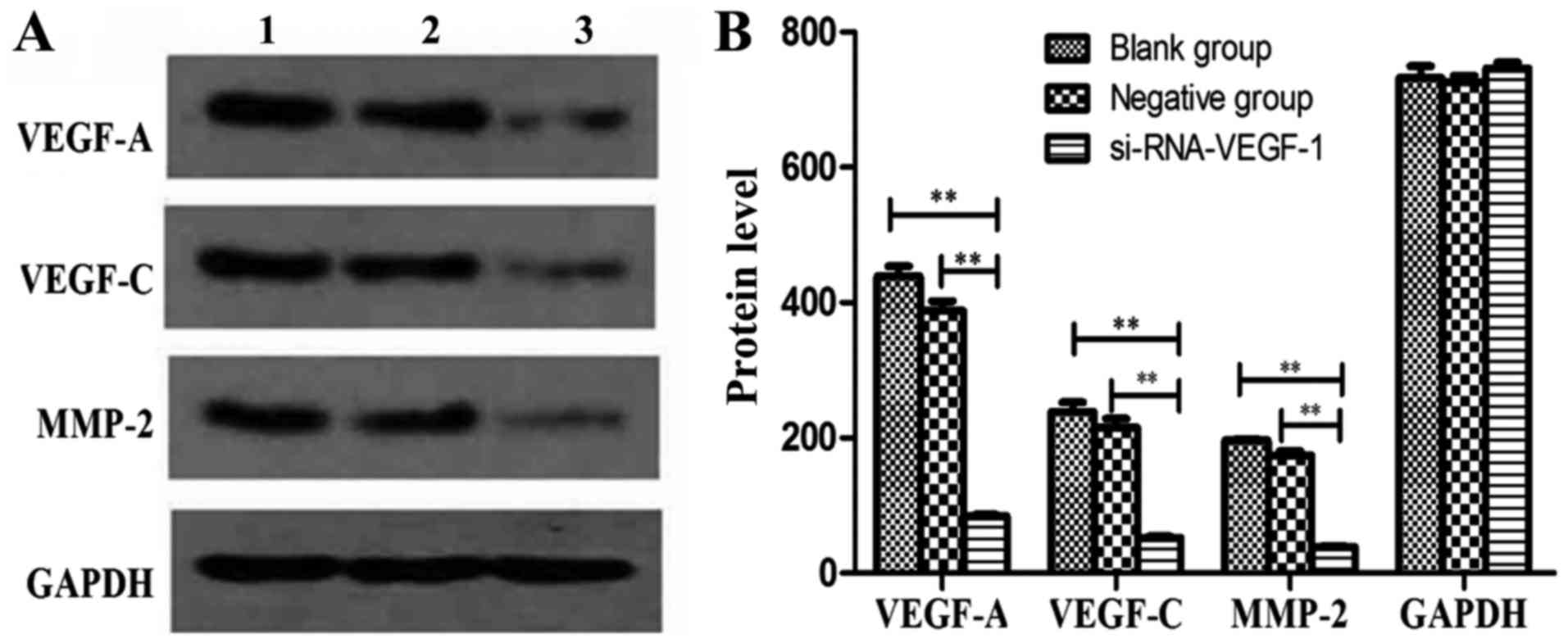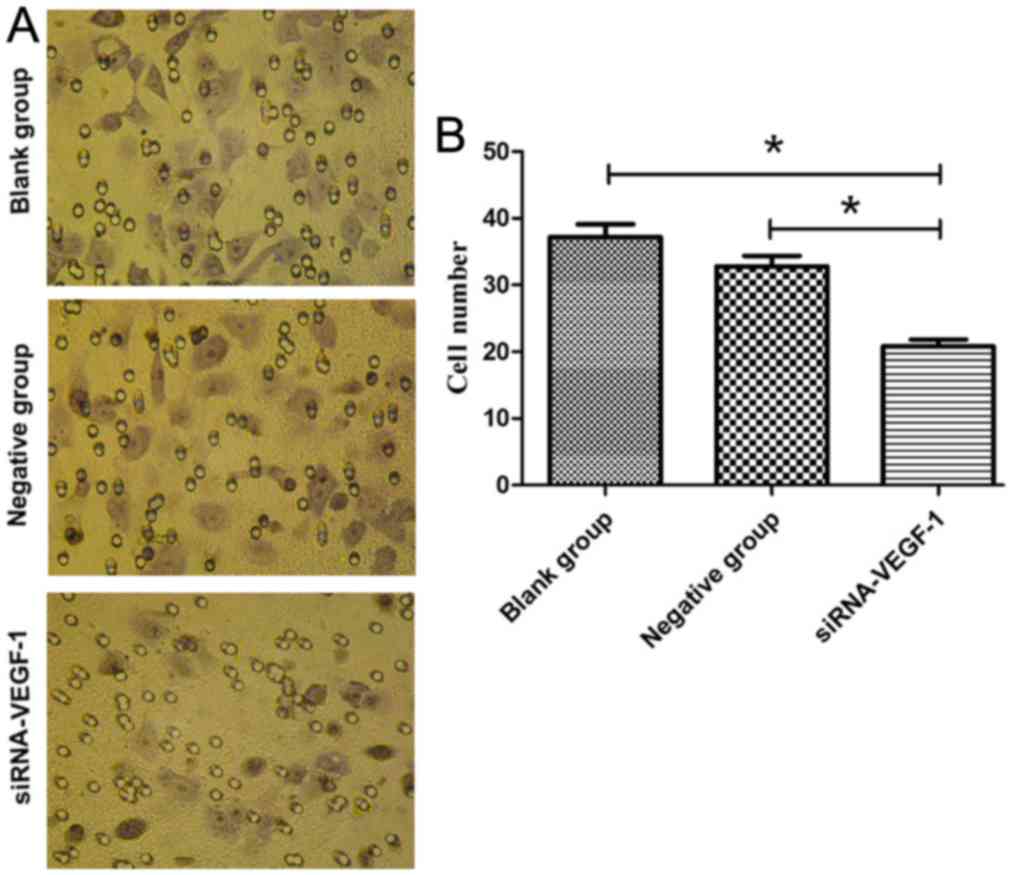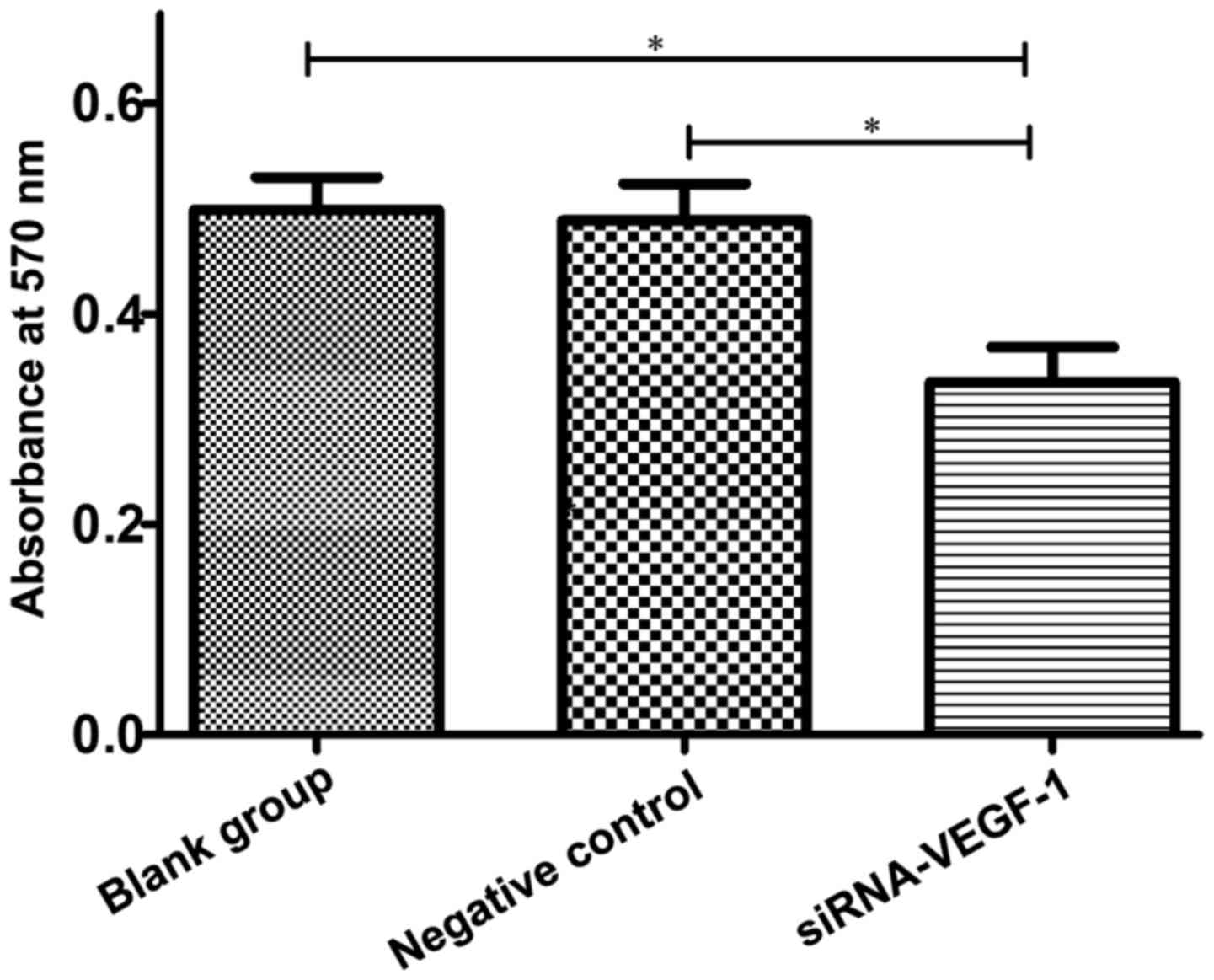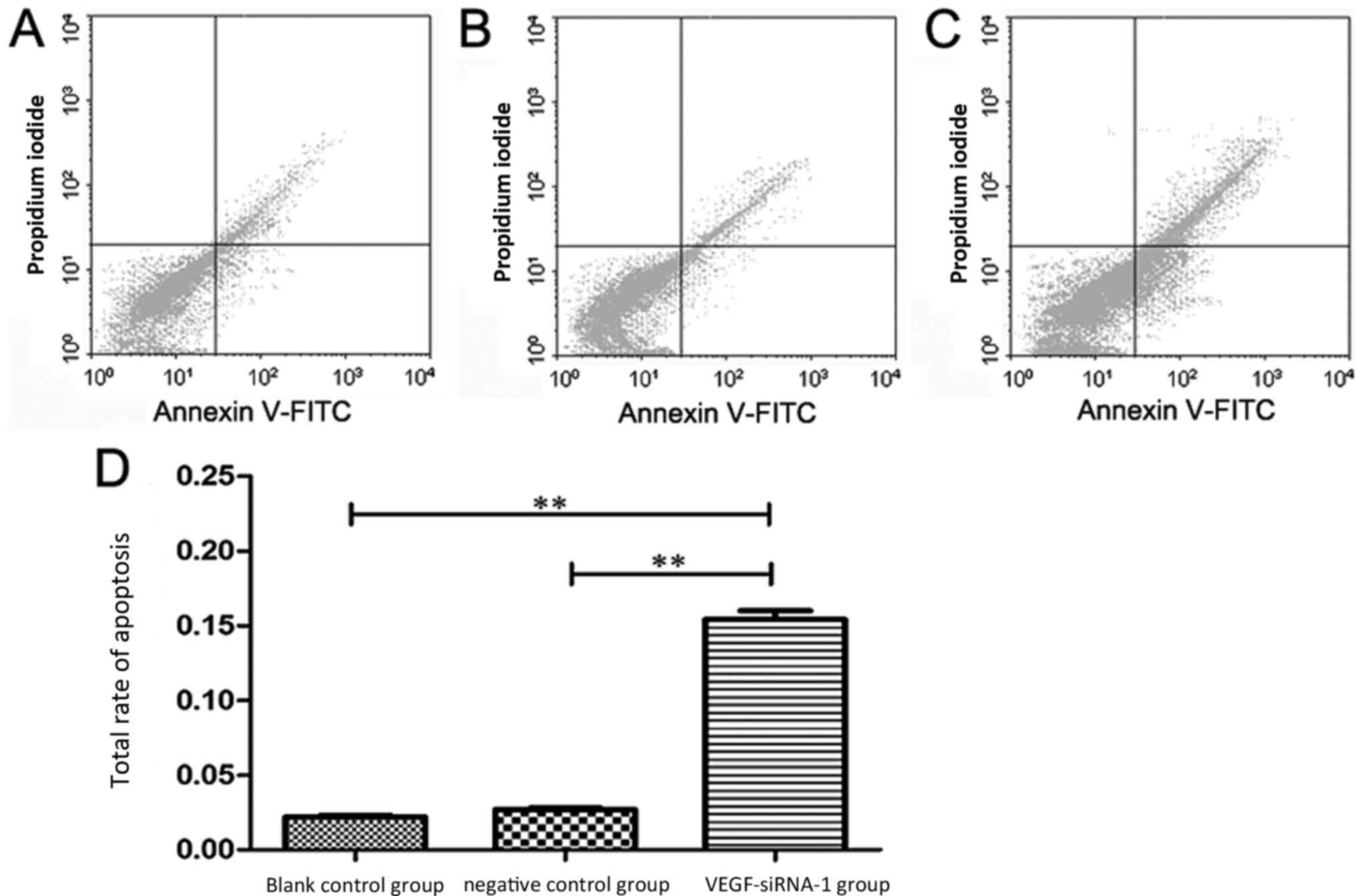|
1
|
Blechacz B and Gores GJ:
Cholangiocarcinoma: Advances in pathogenesis, diagnosis, and
treatment. Hepatology. 48:308–321. 2008. View Article : Google Scholar : PubMed/NCBI
|
|
2
|
Ito F, Cho CS, Rikkers LF and Weber SM:
Hilar cholangiocarcinoma: Current management. Ann Surg.
250:210–218. 2009. View Article : Google Scholar : PubMed/NCBI
|
|
3
|
Blendis L and Halpern Z: An increasing
incidence of cholangiocarcinoma: Why? Gastroenterology.
127:1008–1009. 2004. View Article : Google Scholar : PubMed/NCBI
|
|
4
|
Shin HR, Oh JK, Masuyer E, Curado MP,
Bouvard V, Fang YY, Wiangnon S, Sripa B and Hong ST: Epidemiology
of cholangiocarcinoma: An update focusing on risk factors. Cancer
Sci. 101:579–585. 2010. View Article : Google Scholar : PubMed/NCBI
|
|
5
|
Jemal A, Bray F, Center MM, Ferlay J, Ward
E and Forman D: Global Cancer Statistics. CA Cancer J Clin.
61:69–90. 2011. View Article : Google Scholar : PubMed/NCBI
|
|
6
|
Feige JJ: Tumor angiogenesis: Recent
progress and remaining challenges. Bull Cancer. 97:1305–1310.
2010.(In French). PubMed/NCBI
|
|
7
|
Tang D, Nagano H, Yamamoto H, Wada H,
Nakamura M, Kondo M, Ota H, Yoshioka S, Kato H, Damdinsuren B, et
al: Angiogenesis in cholangiocellular carcinoma: Expression of
vascular endothelial growth factor, angiopoietin-1/2,
thrombospondin-1 and clinicopathological significance. Oncol Rep.
15:525–532. 2006.PubMed/NCBI
|
|
8
|
Thelen A, Scholz A, Weichert W, Wiedenmann
B, Neuhaus P, Gessner R, Benckert C and Jonas S: Tumor-associated
angiogenesis and lymphangiogenesis correlate with progression of
intrahepatic cholangiocarcinoma. Am J Gastroenterol. 105:1123–1132.
2010. View Article : Google Scholar : PubMed/NCBI
|
|
9
|
Halper J: Growth factors as active
participants in carcinogenesis: A perspective. Vet Pathol.
47:77–97. 2010. View Article : Google Scholar : PubMed/NCBI
|
|
10
|
Appelmann I, Liersch R, Kessler T, Mesters
RM and Berdel WE: Angiogenesis inhibition in cancer therapy:
Platelet-derived growth factor (PDGF) and vascular endothelial
growth factor (VEGF) and their receptors: Biological functions and
role in malignancy. Recent Results Cancer Res. 180:51–81. 2010.
View Article : Google Scholar : PubMed/NCBI
|
|
11
|
Zhou J and Tang HH: Significance and
expression of microvessel density, vascular endothelial growth
factor and matrix metalloproteinases 2 in cholangiocarcinoma. Chin
J Gen Surg. 12:122–124. 2003.(In Chinese).
|
|
12
|
Das S, Ladell DS, Podgrabinska S,
Ponomarev V, Nagi C, Fallon JT and Skobe M: Vascular endothelial
growth factor-C induces lymphangitic carcinomatosis, an extremely
aggressive form of lung metastases. Cancer Res. 70:1814–1824. 2010.
View Article : Google Scholar : PubMed/NCBI
|
|
13
|
Achen MG and Stacker SA: Molecular control
of lymphatic metastasis. Ann NY Acad Sci. 1131:225–234. 2008.
View Article : Google Scholar : PubMed/NCBI
|
|
14
|
Vázquez-Vega S, Contreras-Paredes A,
Lizano-Soberón M, Amador-Molina A, García-Carrancá A,
Sánchez-Suárez LP and Benítez-Bribiesca L: RNA interference (RNAi)
and its therapeutic potential in cancer. Rev Invest Clin. 62:81–90.
2010.(In Spanish). PubMed/NCBI
|
|
15
|
Farazi TA, Spitzer JI, Morozov P and
Tuschl T: miRNAs in human cancer. J Pathol. 223:102–115. 2011.
View Article : Google Scholar : PubMed/NCBI
|
|
16
|
Lares MR, Rossi JJ and Ouellet DL: RNAi
and small interfering RNAs in human disease therapeutic
applications. Trends Biotechnol. 28:570–579. 2010. View Article : Google Scholar : PubMed/NCBI
|
|
17
|
Sui G, Soohoo C, Affar el B, Gay F and Shi
Y, Forrester WC and Shi Y: A DNA vector based RNAi technology to
suppress gene expression in mammalian cells. Proc Natl Acad Sci
USA. 99:5515–5520. 2002. View Article : Google Scholar : PubMed/NCBI
|
|
18
|
Yu JY, DeRuiter SL and Turner DL: RNA
interfering by expression of short interfering RNAs and hairpin
RNAs in mammalian cells. Proc Natl Acad Sci USA. 99:6047–6052.
2002. View Article : Google Scholar : PubMed/NCBI
|
|
19
|
McManus MT and Sharp PA: Gene silencing in
mammals by small interfering RNAs. Nat Rev Genet. 3:737–747. 2002.
View Article : Google Scholar : PubMed/NCBI
|
|
20
|
Macedo F, Ladeira K, Longatto-Filho A and
Martins SF: gastric cancer and angiogenesis: Is VEGF a useful
biomarker to assess progression and remission? J Gastric Cancer.
17:1–10. 2017. View Article : Google Scholar : PubMed/NCBI
|
|
21
|
Chen J, Wu H, Han D and Xie C: Using
anti-VEGF McAb and magnetic nanoparticles as double-targeting
vector for the radioimmunotherapy of liver cancer. Cancer Lett.
231:169–175. 2004. View Article : Google Scholar
|
|
22
|
Queiroga FL, Pires I, Parente M, Gregório
H and Lopes CS: COX-2 over-expression correlates with VEGF and
tumour angiogenesis in canine mammary cancer. Vet J. 189:77–82.
2011. View Article : Google Scholar : PubMed/NCBI
|
|
23
|
Botelho F, Pina F and Lunet N: VEGF and
prostatic cancer: A systematic review. Eur J Cancer Prev.
19:385–392. 2010. View Article : Google Scholar : PubMed/NCBI
|
|
24
|
Eibl G, Bruemmer D, Okada Y, Duffy JP, Law
RE, Reber HA and Hines OJ: PGE (2) is generated by specific COX-2
activity and increases VEGF production in COX-2-expressing human
pancreatic cancer cells. Biochem Biophys Res Commun. 306:887–897.
2003. View Article : Google Scholar : PubMed/NCBI
|
|
25
|
Shah MA: The development of bevacizumab in
noncolorectal gastrointestinal malignancies: Gastroesophageal,
pancreatic, and hepatocellular carcinoma. Clin Adv Hematol Oncol.
12:239–246. 2014.PubMed/NCBI
|
|
26
|
Bhardwaj A, Kaur J, Wuest F and Knaus EE:
Fluorophore-labeled cyclooxygenase-2 inhibitors for the imaging of
cyclooxygenase-2 overexpression in cancer: Synthesis and biological
studies. ChemMedChem. 9:109–116, 240. 2014. View Article : Google Scholar : PubMed/NCBI
|
|
27
|
Livak KJ and Schmittgen TD: Analysis of
relative gene expression data using real-time quantitative PCR and
the 2(-Delta Delta C(T)) method. Methods. 25:402–408. 2001.
View Article : Google Scholar : PubMed/NCBI
|
|
28
|
Mansour JC, Aloia TA, Crane CH, Heimbach
JK, Nagino M and Vauthey JN: Hilar cholangiocarcinoma: Expert
consensus statement. HPB (Oxford). 17:691–699. 2015. View Article : Google Scholar : PubMed/NCBI
|
|
29
|
Tsao JI, Nimura Y, Kamiya J, Hayakawa N,
Kondo S, Nagino M, Miyachi M, Kanai M, Uesaka K, Oda K, et al:
Management of Hilar Cholangiocarcinoma: Comparison of an American
and a Japanese experience. Ann Surg. 232:166–174. 2000. View Article : Google Scholar : PubMed/NCBI
|
|
30
|
McCaffrey AP, Meuse L, Pham TT, Conklin
DS, Hannon GJ and Kay MA: RNA interference in adult mice. Nature.
418:38–39. 2002. View
Article : Google Scholar : PubMed/NCBI
|
|
31
|
Petrocca F and Lieberman J: Promise and
challenge of RNA interference-based therapy for cancer. J Clin
Oncol. 29:747–754. 2011. View Article : Google Scholar : PubMed/NCBI
|
|
32
|
Addepalli MK, Ray KB, Kumar B, Ramnath RL,
Chile S and Rao H: RNAi-mediated knockdown of AURKB and EGFR shows
enhanced therapeutic efficacy in prostate tumor regression. Gene
Ther. 17:352–359. 2010. View Article : Google Scholar : PubMed/NCBI
|
|
33
|
Cuevas EP, Escribano O, Monserrat J,
Martínez-Botas J, Sánchez MG, Chiloeches A, Hernández-Breijo B,
Sánchez-Alonso V, Román ID, Fernández-Moreno MD and Guijarro LG:
RNAi-mediated silencing of insulin receptor substrate-4 enhances
actinomycin D- and tumor necrosis factor-alpha-induced cell death
in hepatocarcinoma cancer cell lines. J Cell Biochem.
108:1292–1301. 2009. View Article : Google Scholar : PubMed/NCBI
|
|
34
|
Varnholt H: The role of microRNAs in
primary liver cancer. Ann Hepatol. 7:104–113. 2008.PubMed/NCBI
|
|
35
|
Holash J, Davis S, Papadopoulos N, Croll
SD, Ho L, Russell M, Boland P, Leidich R, Hylton D, Burova E, et
al: VEGF-Trap: A VEGF blocker with potent antitumor effects. Proc
Natl Acad Sci USA. 99:11393–11398. 2002. View Article : Google Scholar : PubMed/NCBI
|
|
36
|
Ylä-Herttuala S: Gene therapy with
vascular endothelial growth factors. Biochem Soc Trans.
37:1198–1200. 2009. View Article : Google Scholar : PubMed/NCBI
|
|
37
|
Grünewald FS, Prota AE, Giese A and
Ballmer-Hofer K: Structure-function analysis of VEGF receptor
activation and the role of coreceptors in angiogenic signaling.
Biochim Biophys Acta. 1804:567–580. 2010. View Article : Google Scholar : PubMed/NCBI
|
|
38
|
Geva R, Prenen H, Topal B, Aerts R,
Vannoote J and van Cutsem E: Biologic modulation of chemotherapy in
patients with hepatic colorectal metastases: The role of anti-VEGF
and anti-EGFR antibodies. J Surg Oncol. 102:937–945. 2010.
View Article : Google Scholar : PubMed/NCBI
|
|
39
|
Vermeulen PB, van Golen KL and Dirix LY:
Angiogenesis, lymphangiogenesis, growth pattern, and tumor emboli
in inflammatory breast cancer: A review of the current knowledge.
Cancer. 116(Suppl 11): S2748–S2754. 2010. View Article : Google Scholar
|
|
40
|
Winder T and Lenz HJ: Vascular endothelial
growth factor and epidermal growth factor signaling pathways as
therapeutic targets for colorectal cancer. Gastroenterology.
138:2163–2176. 2010. View Article : Google Scholar : PubMed/NCBI
|
|
41
|
Kluger MS and Colegio OR:
Lymphangiogenesis linked to VEGF-C from tumor-associated
macrophages: Accomplices to metastasis by cutaneous squamous cell
carcinoma? J Invest Dermatol. 131:17–19. 2011. View Article : Google Scholar : PubMed/NCBI
|
|
42
|
Beeghly-Fadiel A, Shu XO, Lu W, Long J,
Cai Q, Xiang YB, Zheng Y, Zhao Z, Gu K, Gao YT and Zheng W: Genetic
variation in VEGF family genes and breast cancer risk: A report
from the Shanghai Breast Cancer Genetics Study. Cancer Epidemiol
Biomark Prev. 20:33–41. 2011. View Article : Google Scholar
|
|
43
|
Nakatani H, Akimori T, Takezaki Y and
Hanazaki K: Vascular endothelial growth factors and their receptors
in the novel human cell line, HN-Eso-1, established from esophageal
spindle cell carcinoma. J Med Invest. 57:232–236. 2010. View Article : Google Scholar : PubMed/NCBI
|
|
44
|
Park KS, Kim SJ, Kim KH and Kim JC:
Clinical characteristics of TIMP2, MMP2, and MMP9 gene
polymorphisms in colorectal cancer. J Gastroenterol Hepatol.
26:391–397. 2011. View Article : Google Scholar : PubMed/NCBI
|
|
45
|
Overall CM and Dean RA: Degradomics:
Systems biology of the protease web. Pleiotropic roles of MMPs in
cancer. Cancer Metastasis Rev. 25:69–75. 2006. View Article : Google Scholar
|
|
46
|
Gialeli C, Theocharis AD and Karamanos NK:
Roles of matrix metalloproteinases in cancer progression and their
pharmacological targeting. FEBS J. 278:16–27. 2011. View Article : Google Scholar : PubMed/NCBI
|















